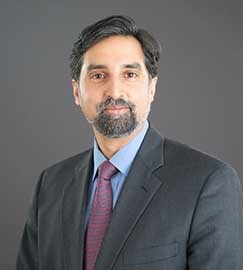Jun 3
2020
How Coronavirus Will Change Medical Schools
By Vikram Savkar, vice president and general manager of the medical segment, Wolters Kluwer’s Health Learning, Research, and Practice business.

The COVID-19 crisis has placed a burden upon every aspect of our society. But nowhere is the burden more immediate and urgent than across the hospital sector. As the number of patients requiring critical care in a short period of time grows into the hundreds of thousands and perhaps beyond, clinicians are confronted with the mission of handling a challenge whose scale far exceeds our standing capacity.
The medical community is rising to that challenge with personal heroism. Every city and town has stories of clinicians who are prepared to work around the clock, despite having inadequate supplies and a high possibility of contracting the very disease that they are treating. If there was ever a time when the average person took their community’s medical infrastructure for granted, that time has now passed.
We will always, those of us who are living through this period, remember the many healthcare professionals and first responders providing COVID-19 care who “ran toward the fire,” as the saying goes, when the rest of us did our part and remained locked away from it. I am hopeful that we will come through this crisis stronger, as the many lessons learned from this pandemic are addressed by health systems, hospitals, and governments.
And in fact the disruptions of COVID-19 at present extend even beyond our hospitals to every other aspect of the medical world as well, including medical schools. Some of these disruptions are temporary, some long-lasting.
Since my company, Wolters Kluwer, works closely with most of the medical schools in the U.S. as well as in many global markets through our digital and textbook solutions, and we are in daily touch with most of them to help them navigate through this turbulence, we have insight into what these changes may be.